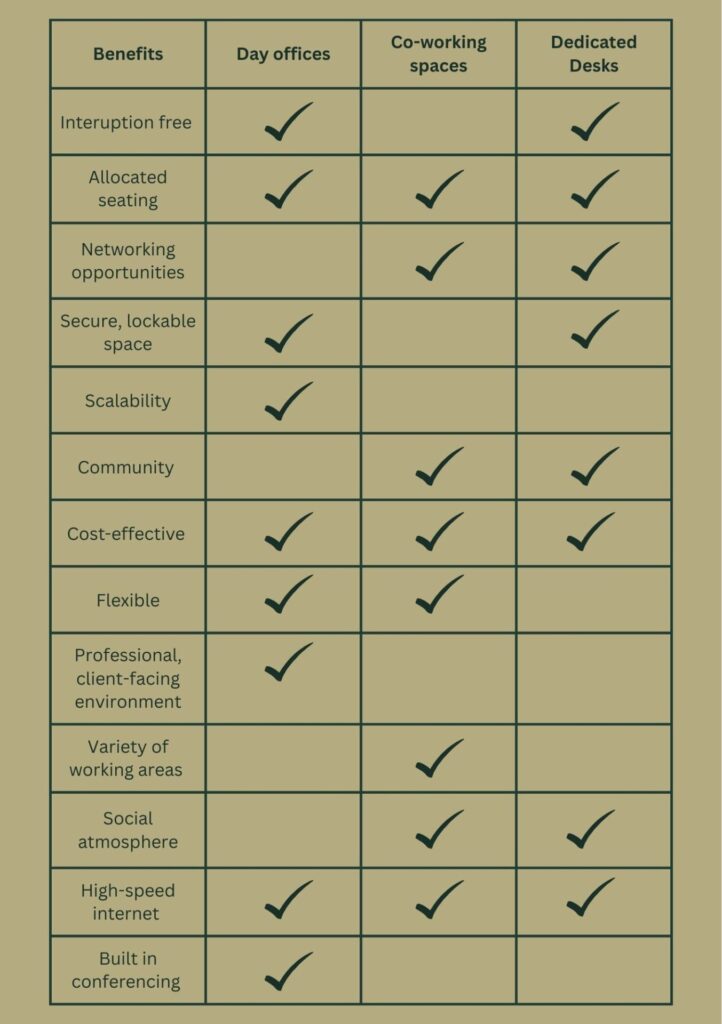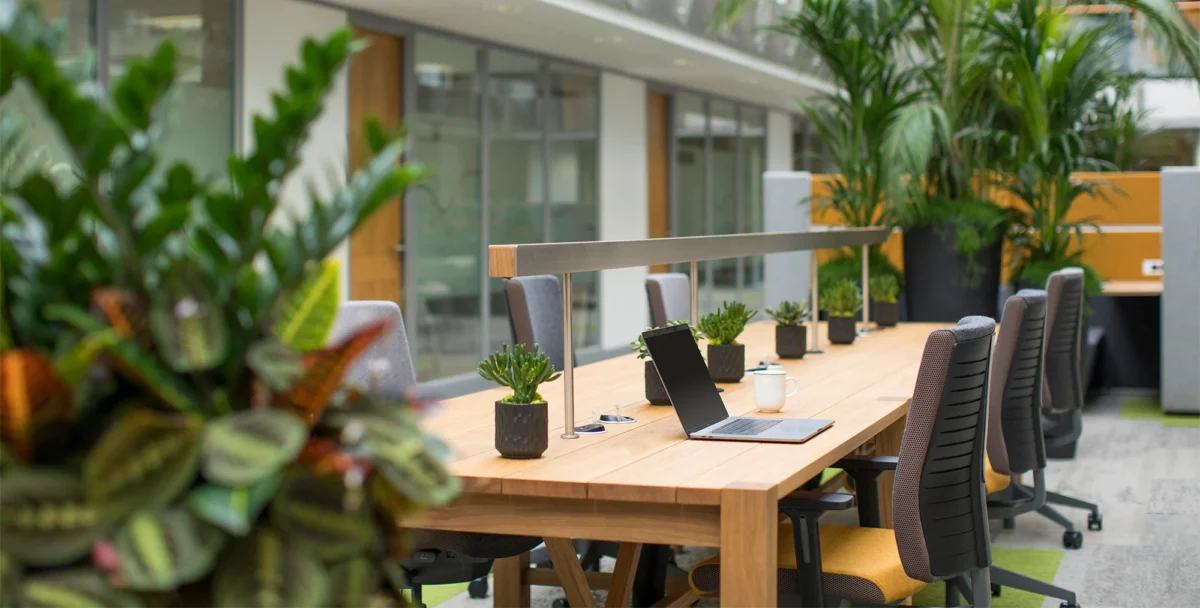Flexible workspaces: Deciding Between Day Offices, Dedicated Desks and Co-working
Flexible workspace for all businesses
At WorkWell, we offer three types of workspace solutions: day offices, co-working spaces, and dedicated desks.
Day-offices, dedicated desks and co-working spaces are professional serviced environments, which operate uniquely, offering different types of office spaces for various working needs.
Co-working spaces, often referred to as hot-desking, are open-plan offices allocated for businesses to work within. This style of working allows businesses to work alongside others, network and reap the benefits of a professional space at a fraction of the cost.
Day offices, on the other hand, are private office spaces that are available for short-term rental. These rooms offer a private, dedicated space for businesses to operate within without distraction.

Dedicated desks combine elements from both types of workspaces, typically accommodating individuals and smaller teams in a shared-private office. An ideal choice for those wanting a fixed desk in an office environment, whilst creating a sense of community that co-working offers.
When a day office is the practical option
Day offices are ideal for teams that need to get together temporarily. Unlike a meeting room, this space is set up with workstations to plug and play. An ideal solution for hybrid and project-based teams looking for a short-term base.
Ergonomic furniture and smart storage solutions in our clean and well-designed offices are designed for productive and efficient working. Built-in conferencing capabilities remove the hassle of bringing your own equipment, perfect for a fast setup.
Our spaces are secure, which means our returning members can rest assured knowing any items kept within their day office remain safe. Each space blends comfort with convenience, promoting efficiency and productivity, tangible results and a real-time impact on the quality of output from a business.
When a co-working space is the most suitable option
Co-working is a fantastic option for entrepreneurs, businesses and freelancers seeking a tidy, nice, professional working environment, with opportunities to network and connect with other people.
Our co-working settings are perfect for those wanting an office-like environment. The ability to use the space as and when needed makes it ideal for those who adopt hybrid-work models or part-time office workers.
Our co-working spaces have numerous allocated seats, which may be acquired by various teams, which means our members will likely have the opportunity to meet other co-working members. We promote a collaborative atmosphere, increasing the chance for individuals to connect with other professionals.
When a dedicated desk is the ideal solution
Dedicated desk strikes a balance between the benefits of co-working and day offices, allowing small teams to have a dedicated space within a private office made up of other businesses.
This model of work allows our dedicated desk members to enjoy the privacy of an office, whilst still having the opportunity to network with other members. This is an effective long-term solution for those who only need one or two desks rather than a full private office.
Ready to find the right fit?
If you’re exploring the flexibility of a co-working space, the consistency of a dedicated desk, or a short-term base from a day office, contact us, and we’d be happy to discuss your business needs. We can help you explore the most practical office, as well as provide a tour of the facilities upon request.








